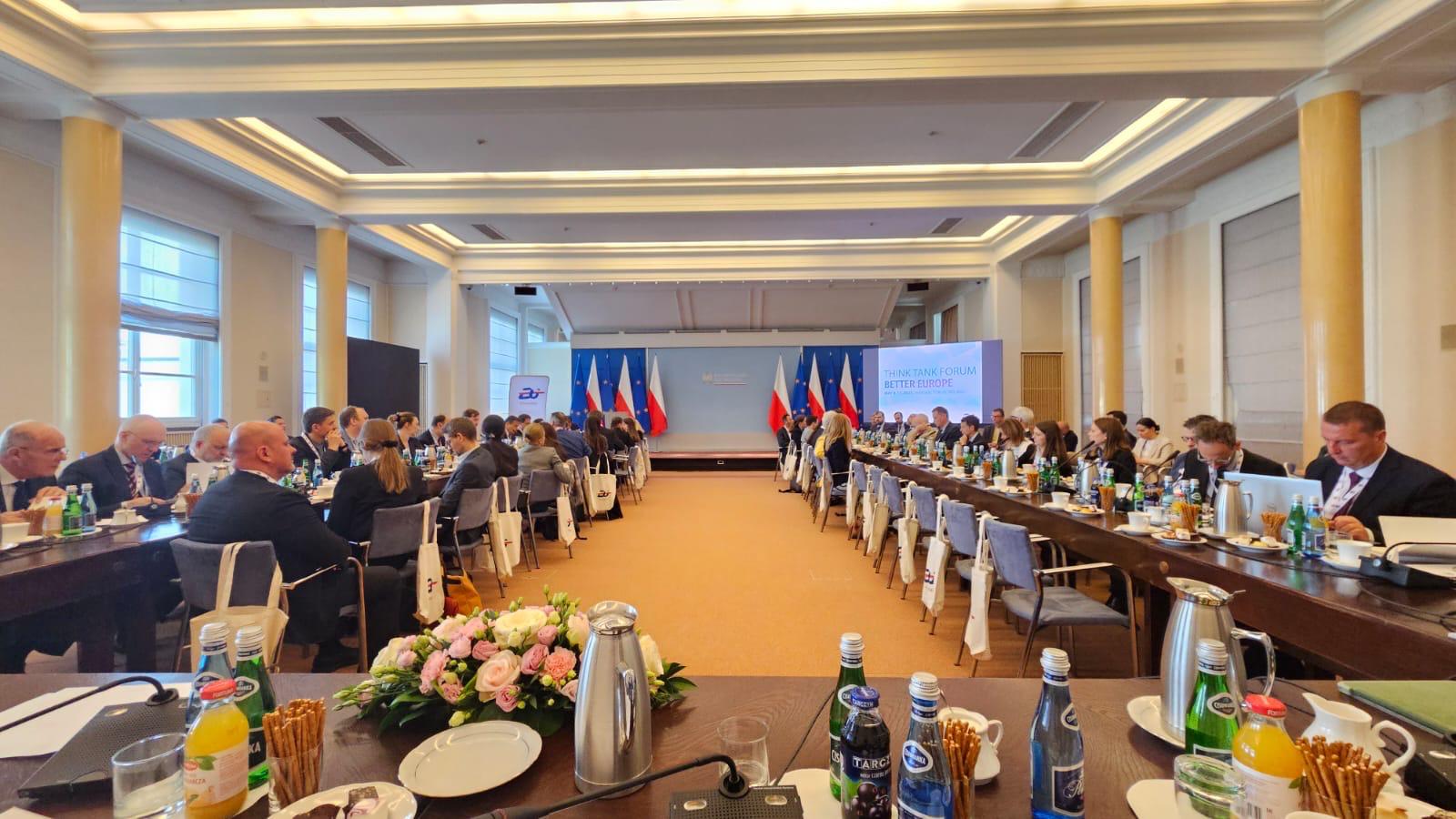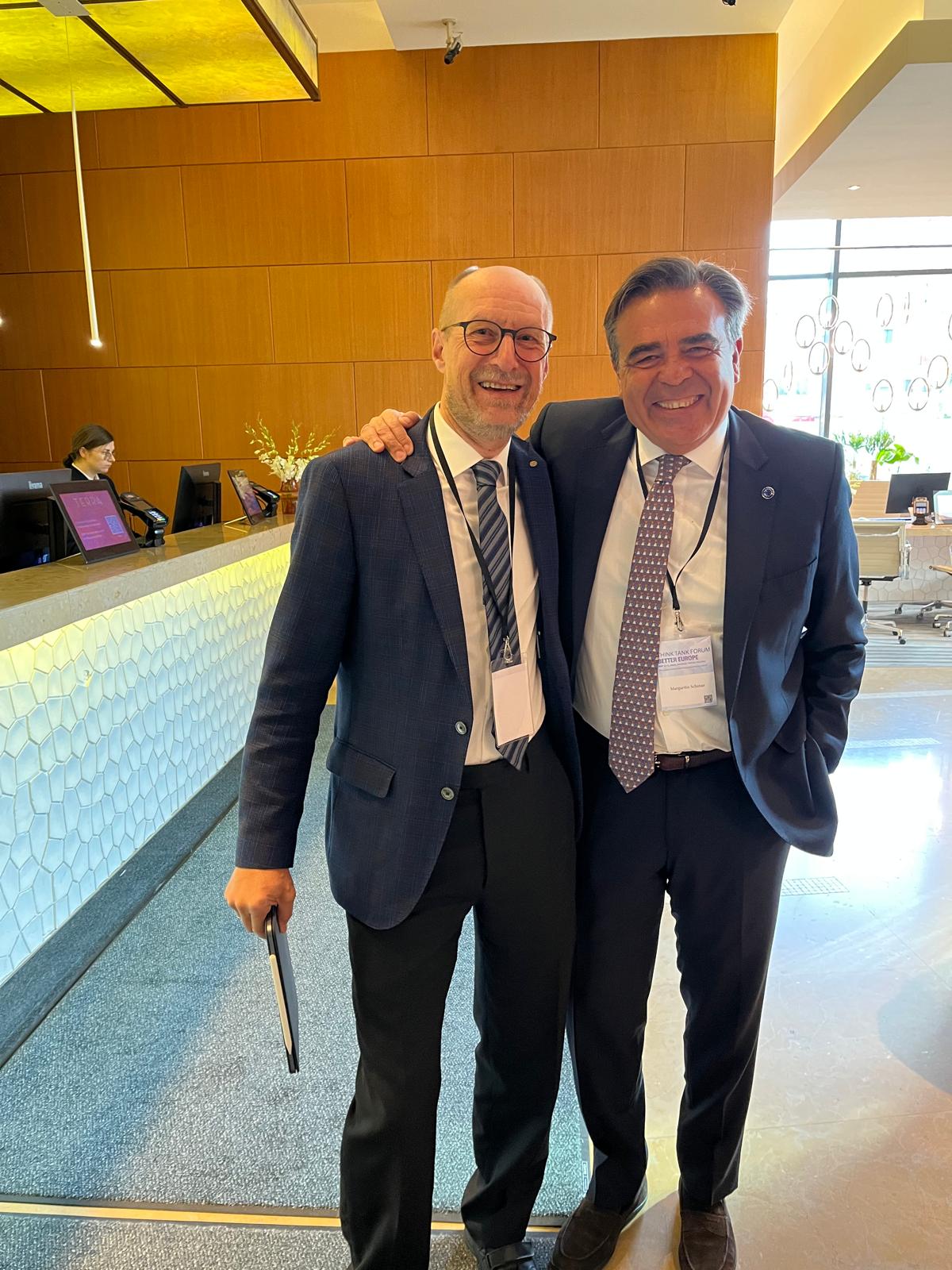Thought Leadership

By Jochen M. Richter, Chairman Diplomatic Council Global Security Forum
The Centre for International Relations Foundation (CIR) gathered think tanks from across Europe including some EFTA countries, the UK and the US for a debate around 4 topics: better competitiveness, strategic autonomy, European defence and more resilience.
The conference allowed for many informal discussions.Participants represented all age groups and a variety of experiences and expertise. Having been linked to the current Polish EU presidency, regularly Ministers were present for further insights. The basis of our exchanges was a provocative document about the EU reforms that Prof. Bonikowska from CIR had initiated.
The meeting coincided with the celebrations on the end of WWII and the Schuman day. The visits of the coalition of the willing to Kyiv, the meeting of Foreign Ministers in Lviv and the signature of the French-Polish Nancy treaty but also the conflict between India and Pakistan influenced our reflections.
My presence for the Diplomatic Council allowed in several contexts to advertise our proposals as layed out in the book Europe and the Evolving New Global Order.
What could be some preliminary conclusions from our discussions.
On a more critical note, it is clear that even today there is no common analysis and understanding from Lisbon to Riga which threats Europe is facing. That leads also to a very different perspective on what needs to be done.
Secondly, while no one was in favour of a revolutionary approach, some expressed fear of too deep EU reforms while others made good proposals being worthwhile to be thought through.
Pointing to the more positive aspect I would see consensus that more European efforts in defence are necessary. However, it was underlined that creating more trust, more dialogue between politics, military and industry is necessary. That should also lead to much less duplication and increased interoperability.
The discussions around strategic autonomy demonstrated the need to define the concept and meaning. Similar calls to clarify this buzzword were made when I was in one panel at the Warsaw School of Economics. Our interlinked world requires to carefully measure the advantages against the undoubtedly higher costs. Across the board, however, was a call for less red tape.
Competitiveness will only be achievable, if we foster more appetite for entrepreneurship and change our attitude to risk taking and failure. Something that should be even brought to schools. Diverse ideas were presented how to translate the new needs into budget discussions starting soon. Maybe a fair conclusions is that many were in favour of cuts where appropriate and revised resources as much as acceptable.
Regarding resilience, many recognised that the intelligent approach of Sweden and Finland, to combine preparedness for desaster situations brings positive results for both civil protection and potential military conflicts. Discussion the challenges of disinformation a network of research experts was created and ideas exchanged how to foster the critical analysis of source especially for children.
I would round up with a thought that apparently German Chancellor Adenauer once had and that could be a line of reflection about our narrative on more defence needs and continuous support for Ukraine. If people are doing badly in their everyday lives, they have no sense for what may seem at first glance to be unpopular measures in foreign policy, especially those that cost a lot of money. But without such measures, we cannot ensure that people are well in the long term.
Photo: Jochen M. Richter (left) with Margaritis Schinas, Vice President of the EU Commission 2019-2024:

